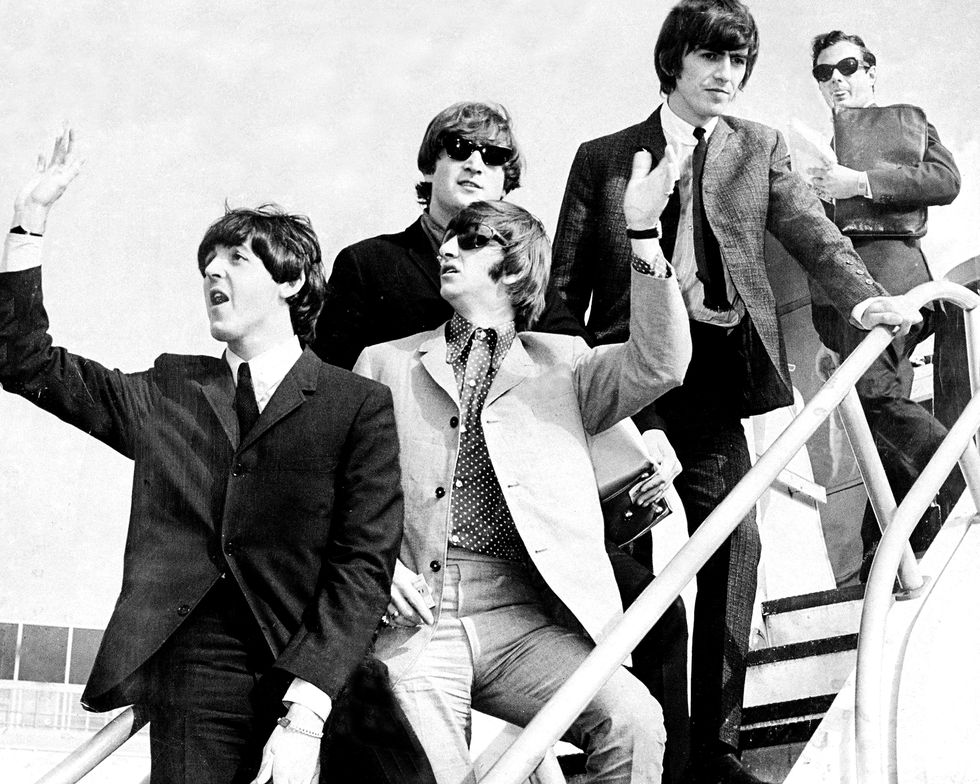Brian Epstein had a vision: to transform a local musical act called the Beatles into the biggest band in the world, eclipsing even Elvis Presley. His relentless belief in their talent and marketability was pivotal in shaping their image and launching their career. Paul McCartney once famously remarked, “If anyone was the fifth Beatle, it was Brian.” This statement underscores Epstein's crucial role in the Beatles' journey to global superstardom.
Robert Rodriguez, author of "Revolver: How The Beatles Reimagined Rock ‘n’ Roll," emphasizes Epstein’s critical place in music history, stating, “His story is an against-all-odds kind of thing, and he is essential to why we know the Beatles at all.” The partnership between Epstein and the Beatles was not just a matter of luck; it was a meeting of vision and ambition that would change the face of music.
Born in Liverpool in 1934 to Harry and Queenie Epstein, Brian came from a family of Eastern European Jewish descent that established a successful retail business. He was known for his sharp fashion sense and creativity, having left the Royal Academy of Dramatic Art to help run the family business. There, he demonstrated a unique flair for creating captivating displays, especially in the music department, setting the stage for his later career in talent management.
Epstein’s Early Belief in The Beatles
In November 1961, Epstein attended a lunchtime concert at the Cavern Club, where he witnessed John Lennon, Paul McCartney, George Harrison, and drummer Pete Best perform. He was immediately captivated, stating, “I was struck by their music, their beat, and their sense of humor on stage.” This initial connection ignited his desire to manage the band, and in early 1962, he convinced them to sign him as their manager.
Despite being a novice in talent management, Epstein quickly recognized the potential of the Beatles. His unwavering belief in them led him to overhaul their image, moving away from their rough and rebellious beginnings. He replaced their casual attire of jeans and leather with sharp suits, ensuring they presented a clean and polished appearance to the world.
Epstein's vision was transformative; within six months of signing the band, he secured them a recording contract. This was just the beginning of a whirlwind that would see the Beatles performing for the Royal Family and appearing in films, all while highlighting their charisma and unique humor.

The Beatles and manager Brian Epstein arriving in New York City in 1963 to appear on 'The Ed Sullivan Show'; Photo: Dan Farrell/NY Daily News Archive via Getty Images.
Epstein’s Dedication and Challenges
With Epstein at the helm, the Beatles saw a meteoric rise in their popularity. The band quickly transitioned to larger venues, and in 1963, their single “Please Please Me” soared to the top of the UK charts, marking the start of Beatlemania. However, Epstein’s management style was unique; he was never motivated by greed or exploitation. Rodriguez notes, “He recognized that there was something special there and kept them on a certain trajectory, which he did to his dying day.”
However, Epstein was often criticized for his lack of business acumen. He made several questionable deals regarding copyrights and merchandising that ultimately cost the band millions. Even McCartney later reflected, “British people didn’t know that stuff at the time,” acknowledging Epstein's limitations while also recognizing his invaluable contributions.
As the Beatles’ success grew, Epstein began to struggle with his personal life. The pressures of managing the world’s biggest band took a toll, leading him to develop a dependence on stimulants. Despite his struggles, he sought help while the band was recording the iconic "Sgt. Pepper’s Lonely Hearts Club Band," but ultimately was unable to overcome his addiction.
The Tragic End of Epstein’s Journey
On August 27, 1967, during the height of Beatlemania, Epstein tragically passed away from an overdose of sleeping pills and alcohol. Officially ruled an accident, many speculated it could have been suicide, though biographer Rodriguez challenges this notion. In the weeks leading to his death, Epstein had experienced personal loss, yet he was focused on his recovery and the future of the Beatles.
With Epstein's passing, the Beatles lost their guiding force. He was instrumental in keeping them organized and focused, and after his death, the band struggled to maintain their momentum. Just under three years later, they disbanded, as Rodriguez noted, “Every lucky break they could have got... they did, up until Brian died.”
Legacy and Recognition
Despite his early death, Epstein’s impact on the music industry remains profound. The Beatles, who have sold over 800 million records, were inducted into the Rock and Roll Hall of Fame in 1988. Epstein himself was posthumously inducted in 2014, recognizing his unique role as the manager who turned the Beatles into a global phenomenon.
In retrospect, Epstein had achieved much, yet his artistic hunger remained unquenched. Rodriguez emphasized that Epstein saw the Beatles’ potential to redefine music, and their loss deeply affected the band. “He was the guy they needed, and they didn’t have him anymore,” a sentiment that highlights the void left in the wake of his passing.
The Remarkable Legacy Of Titanic: 25 Years Of Box Office Triumph
Kareem Abdul-Jabbar: The Legacy Of A Basketball Legend
Tiffany Trump: A Glimpse Into The Life Of Donald Trump's Daughter


